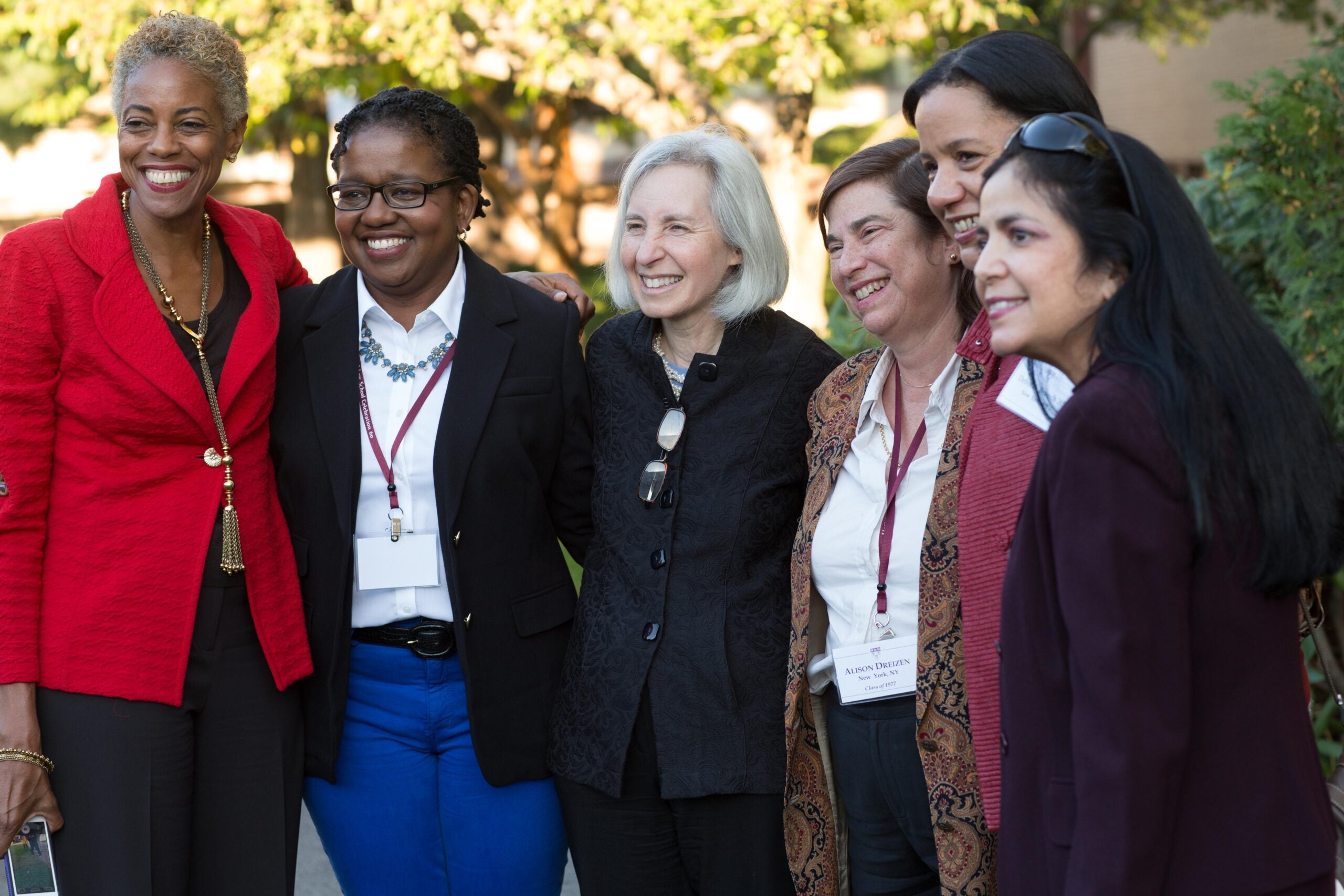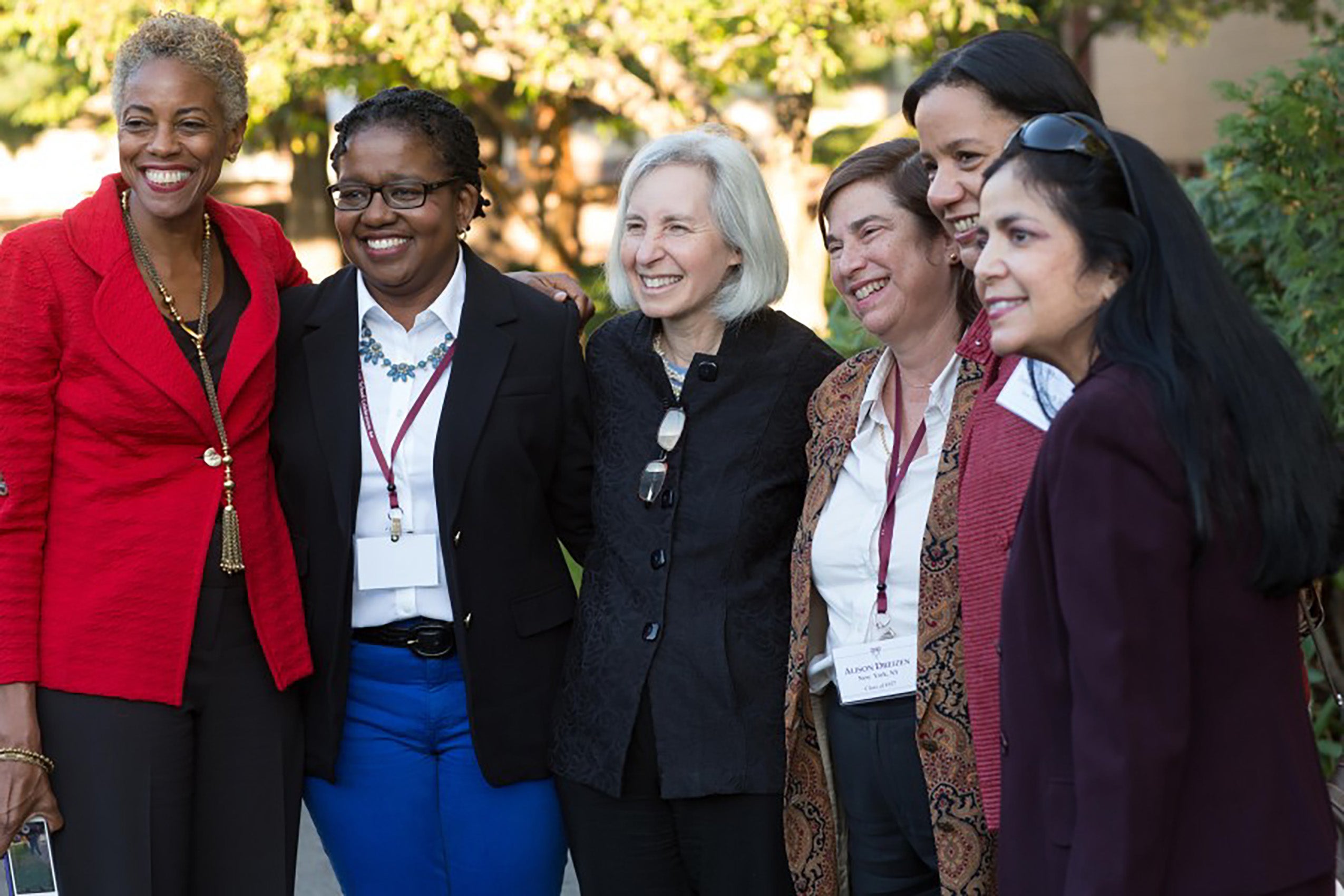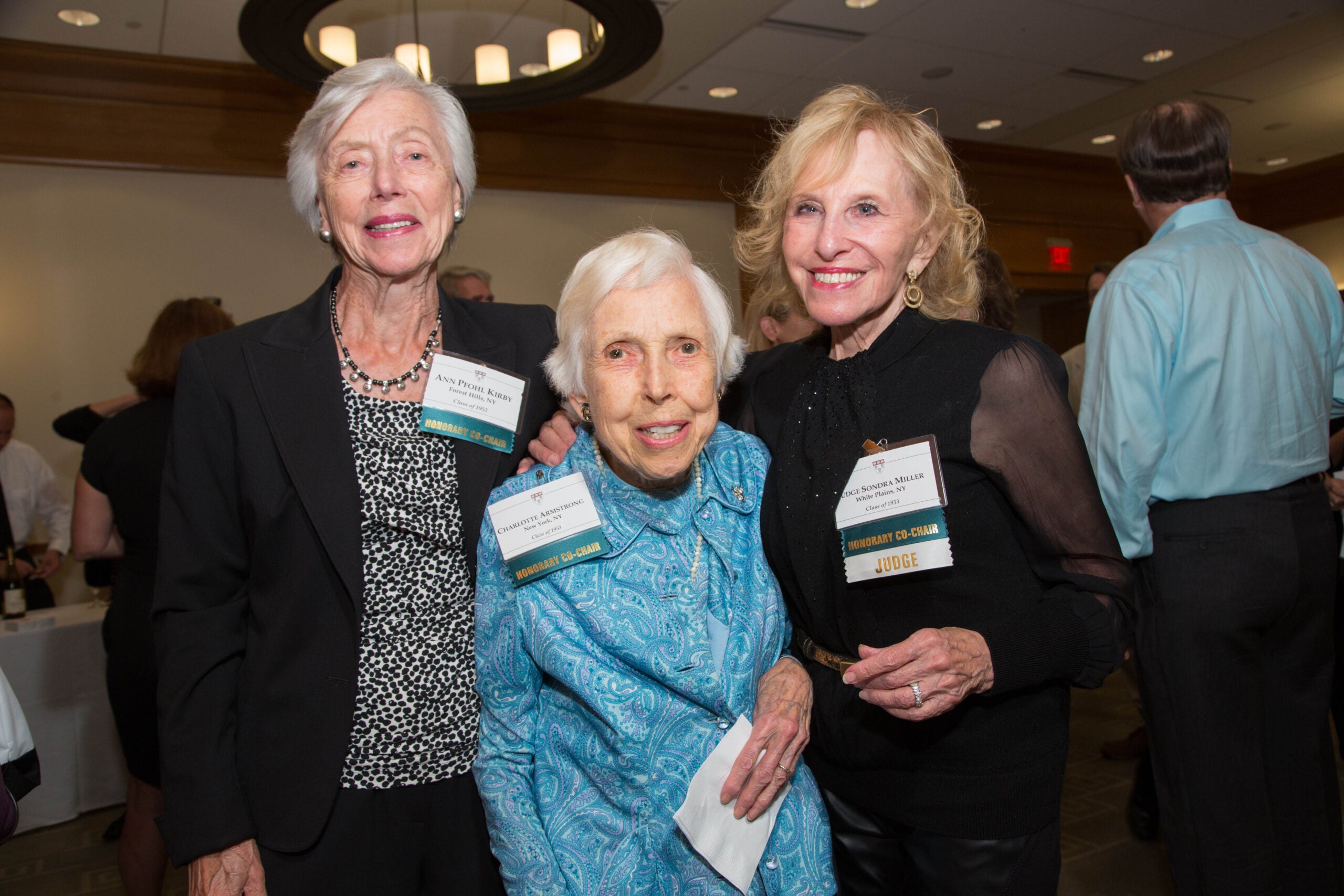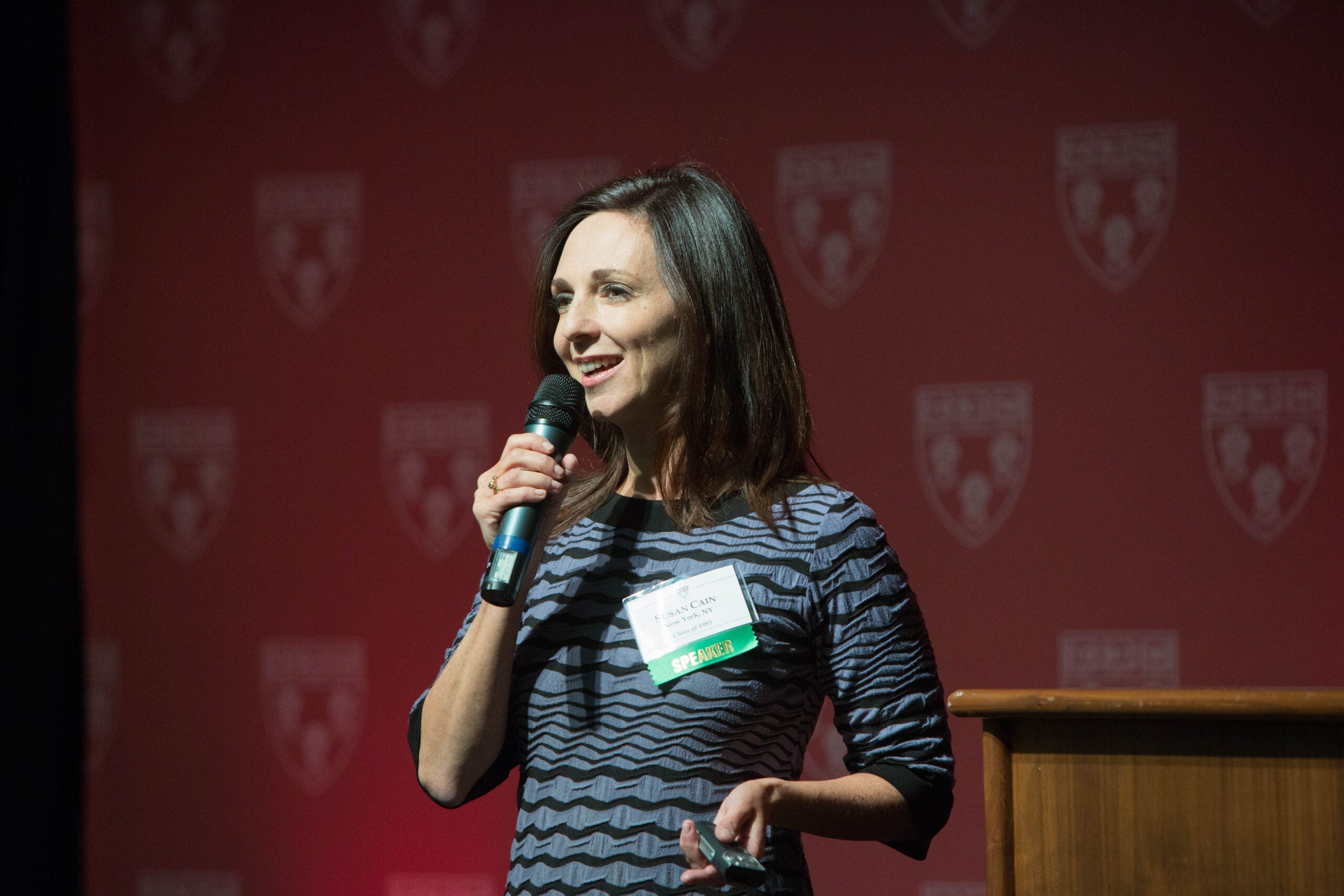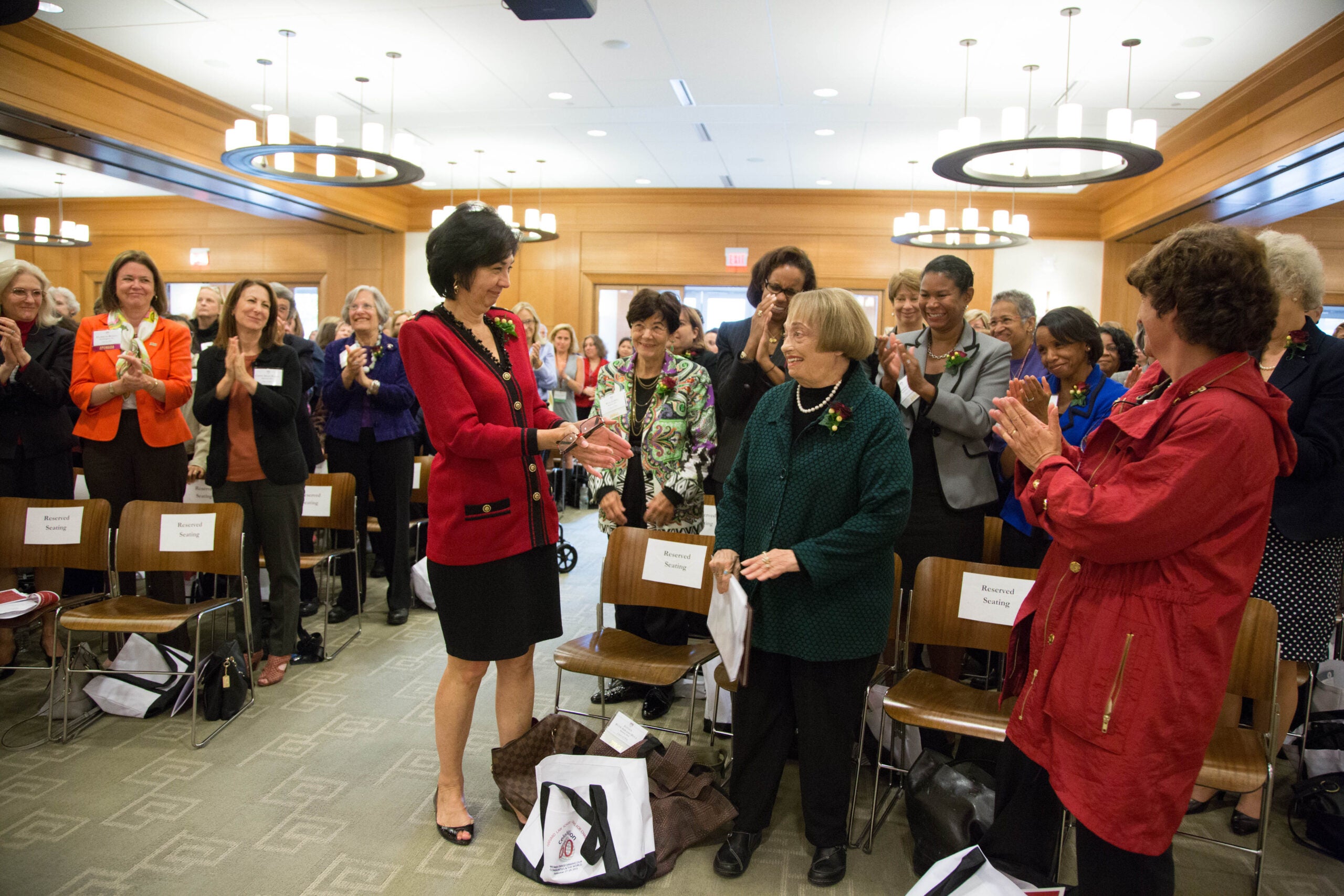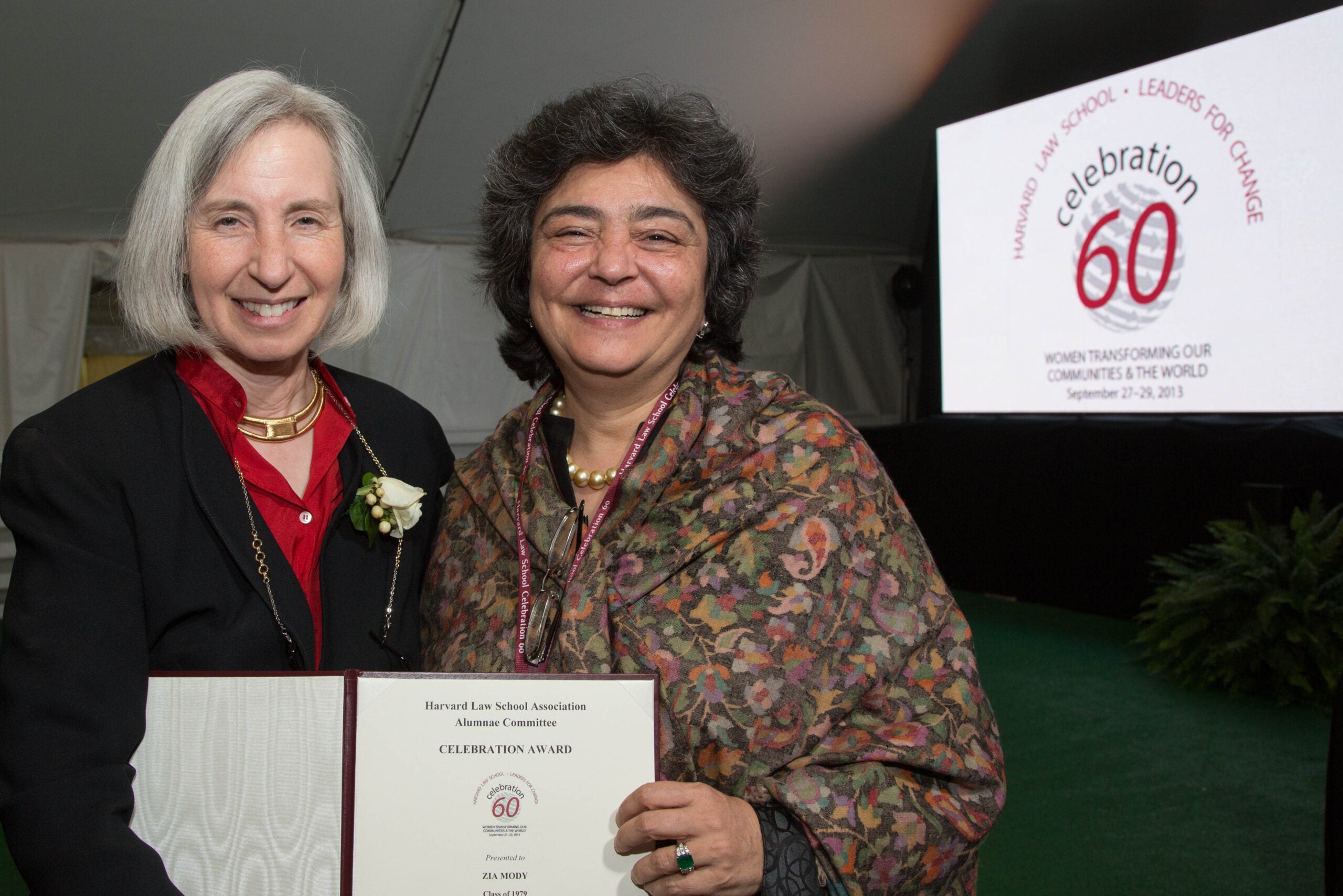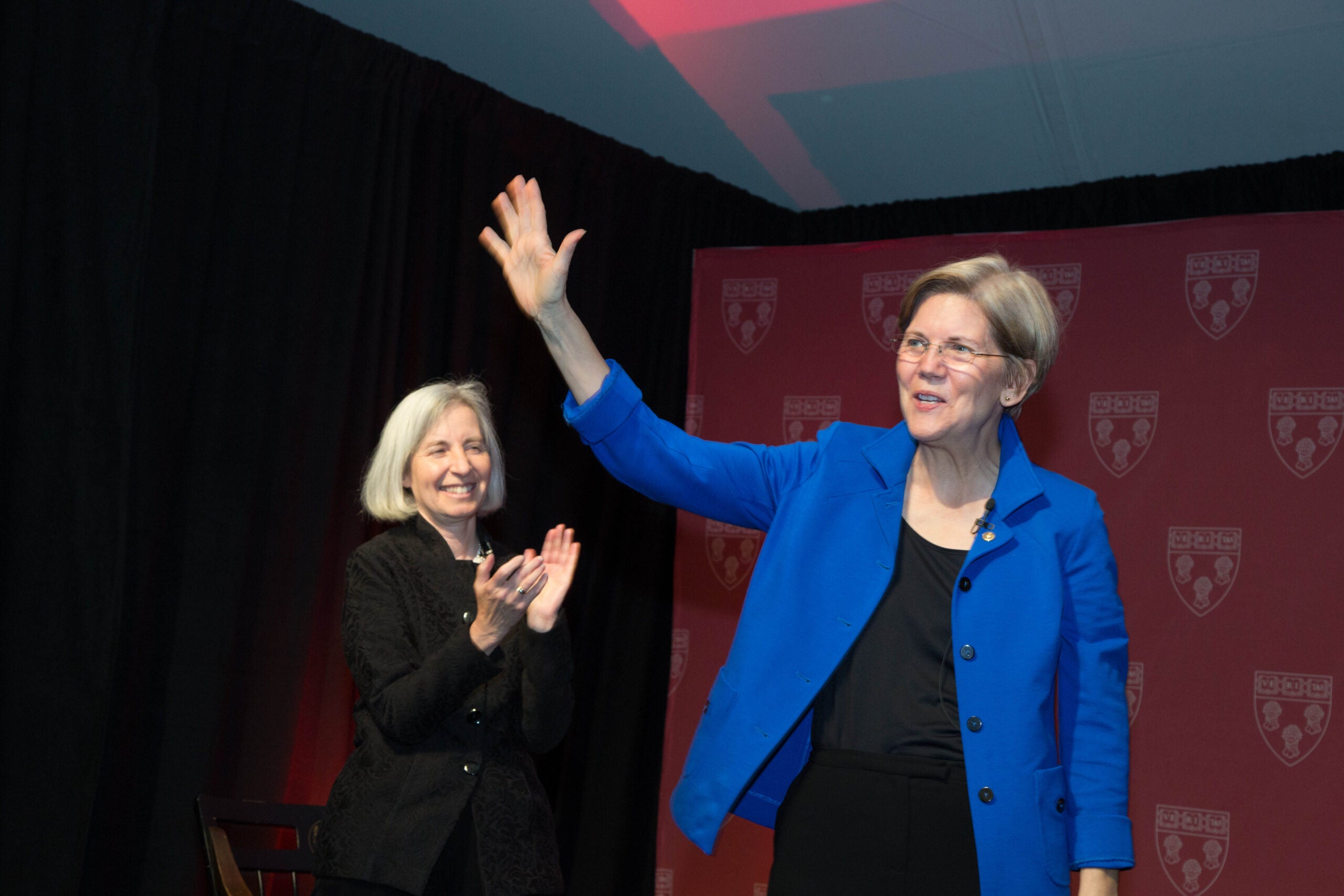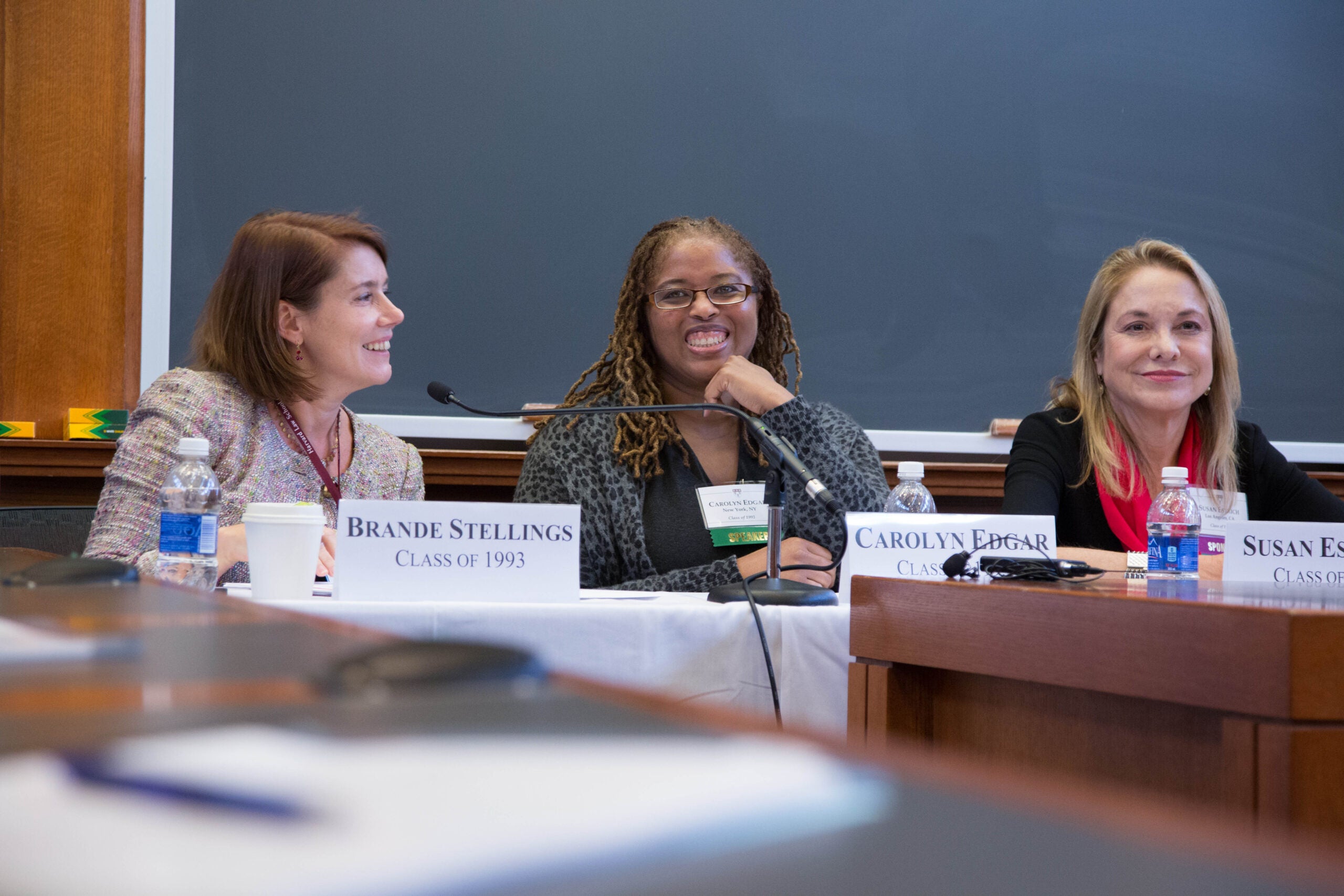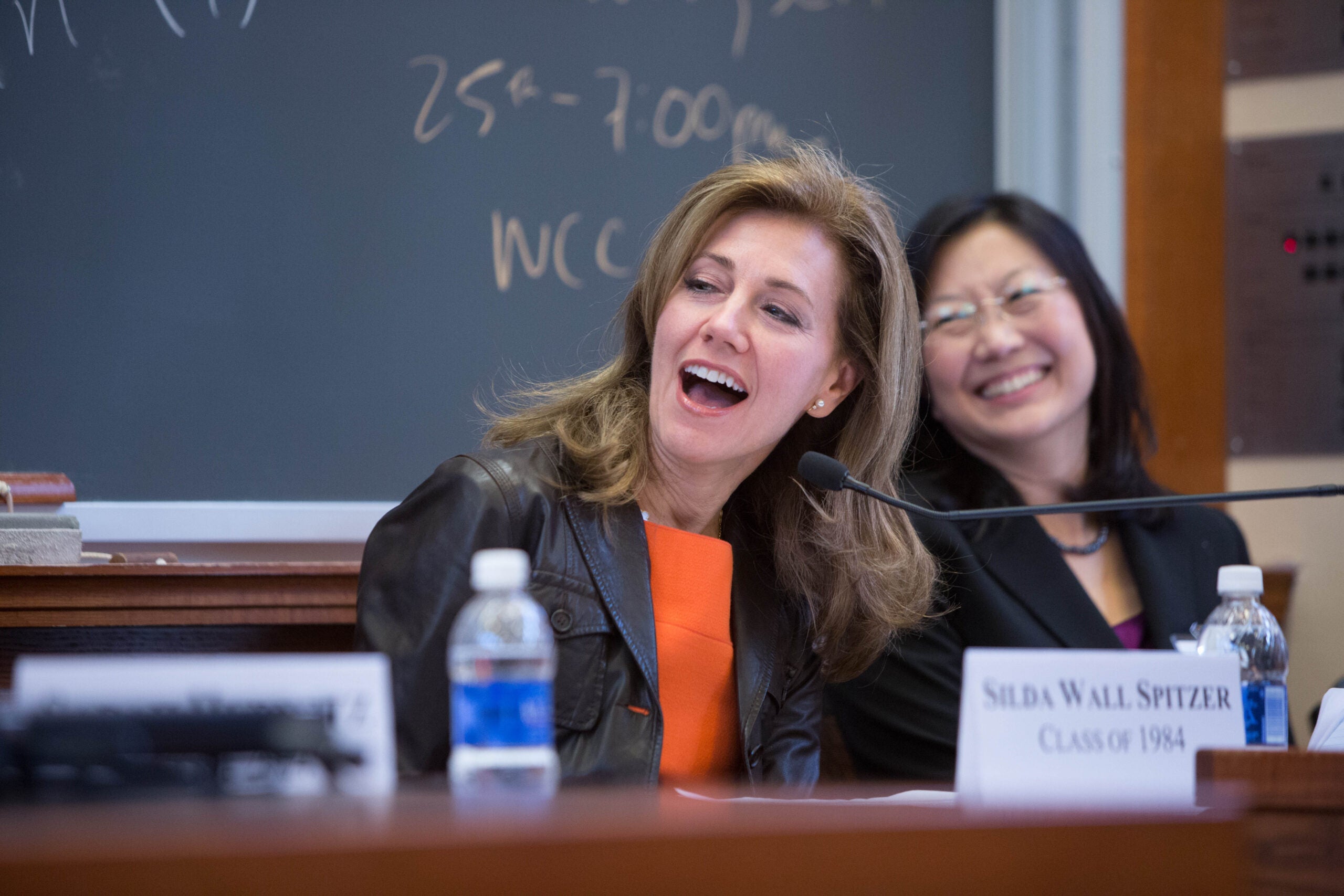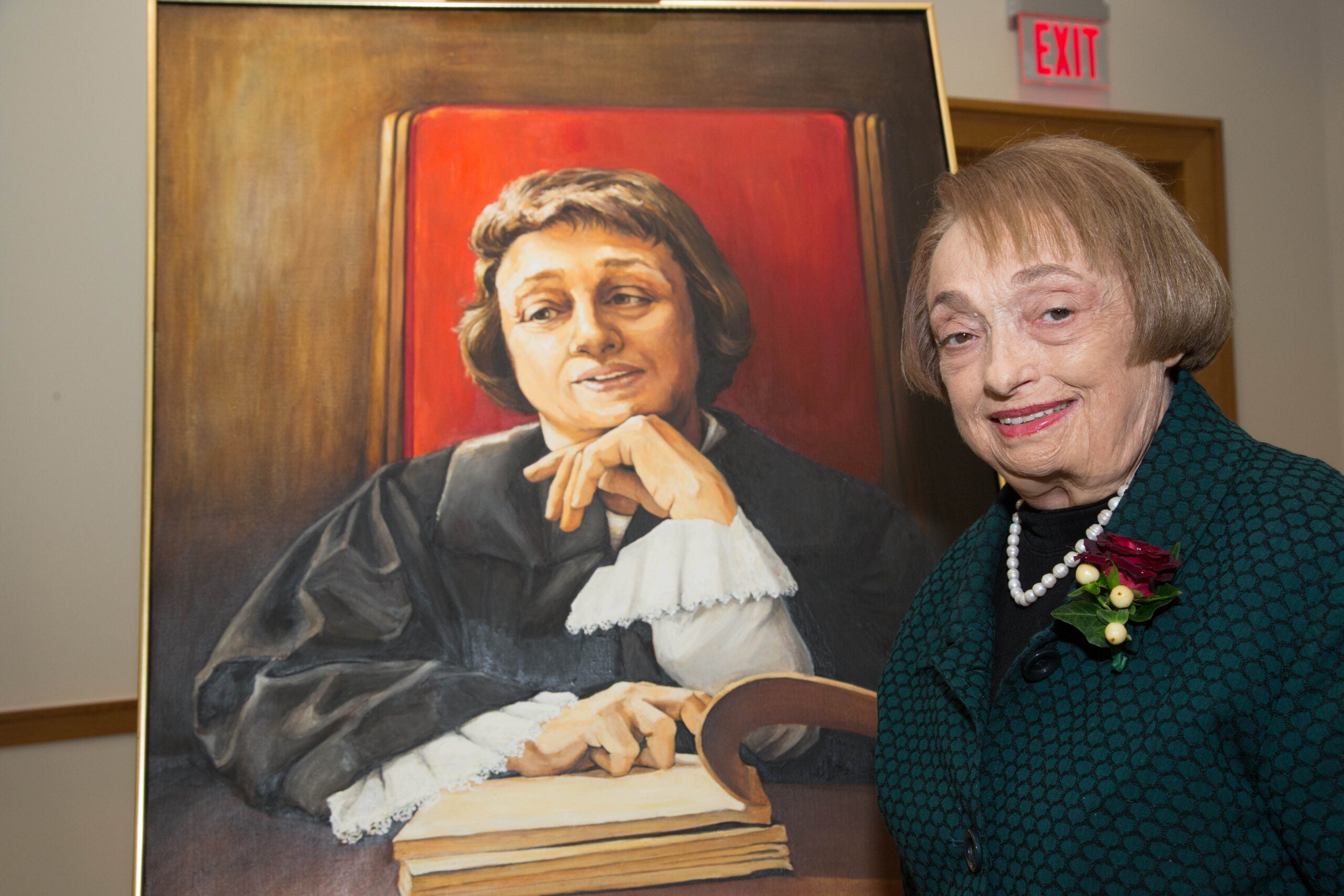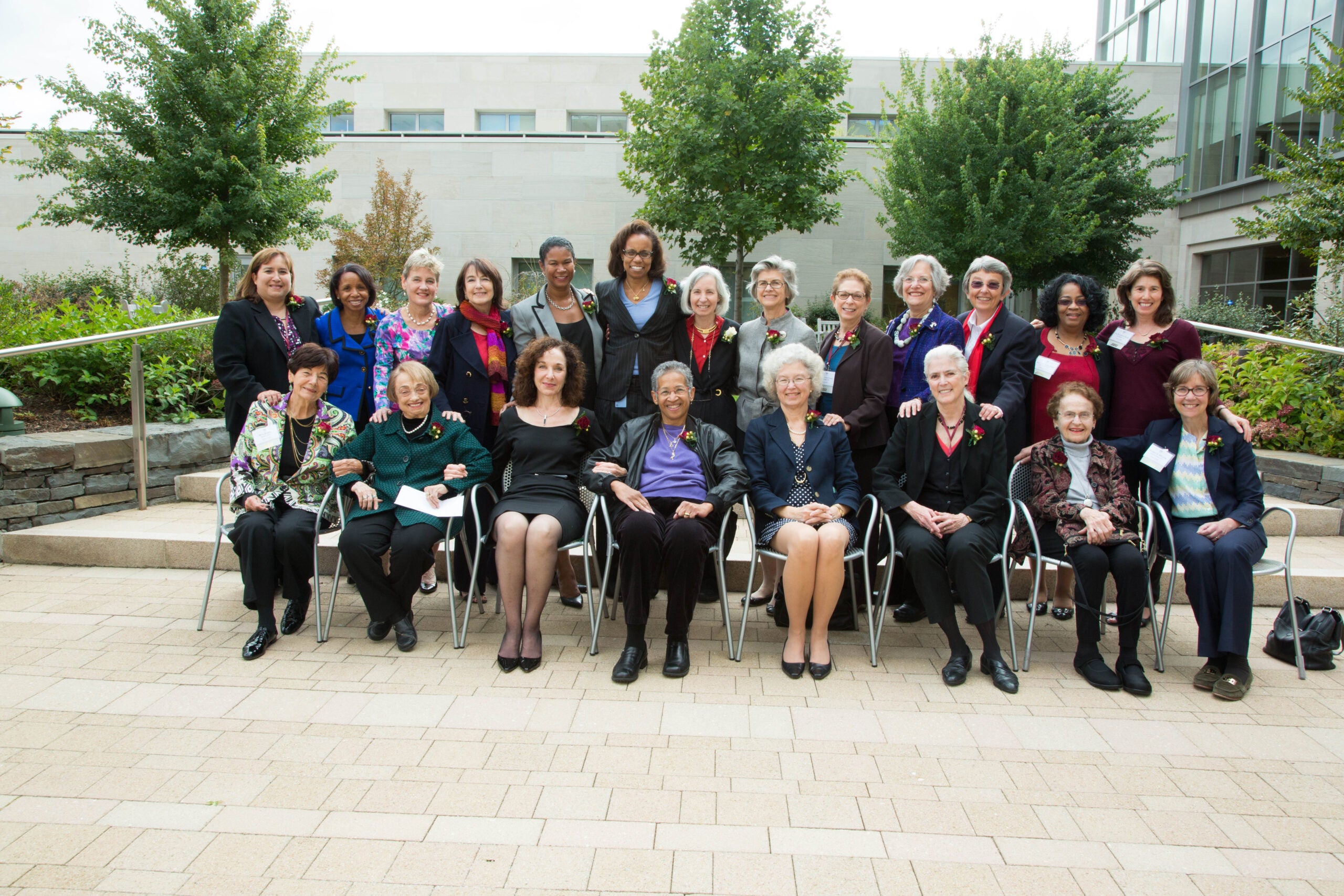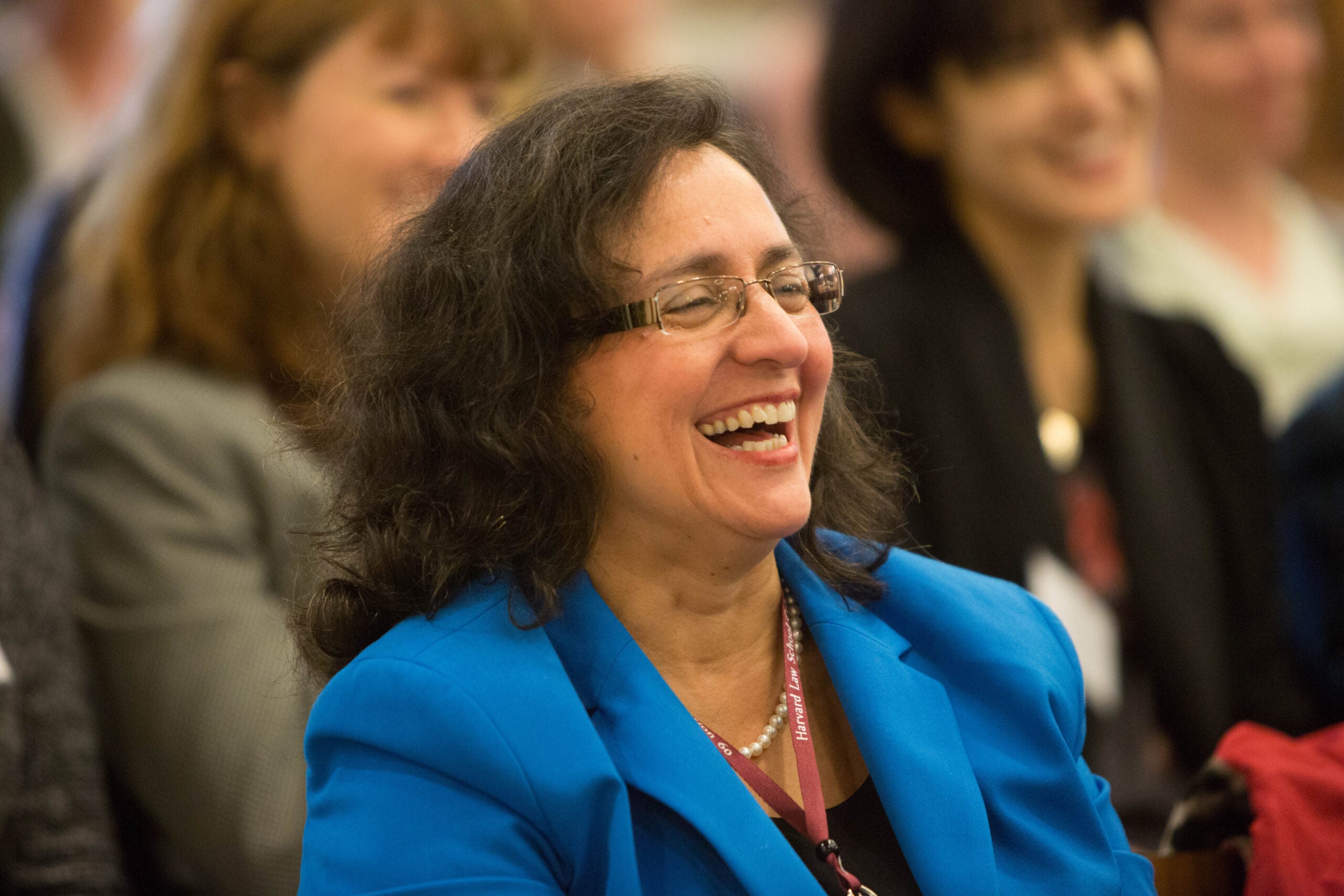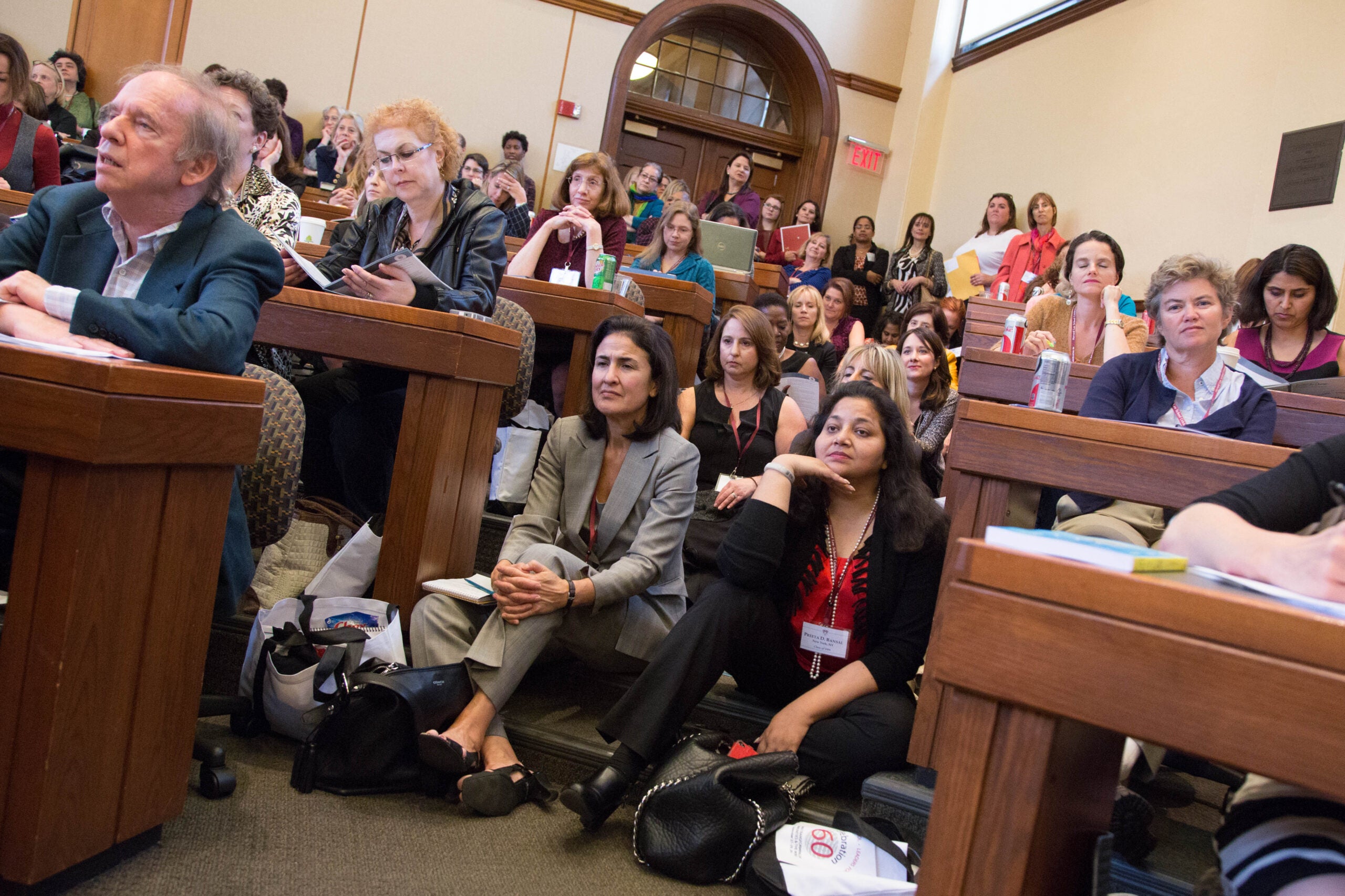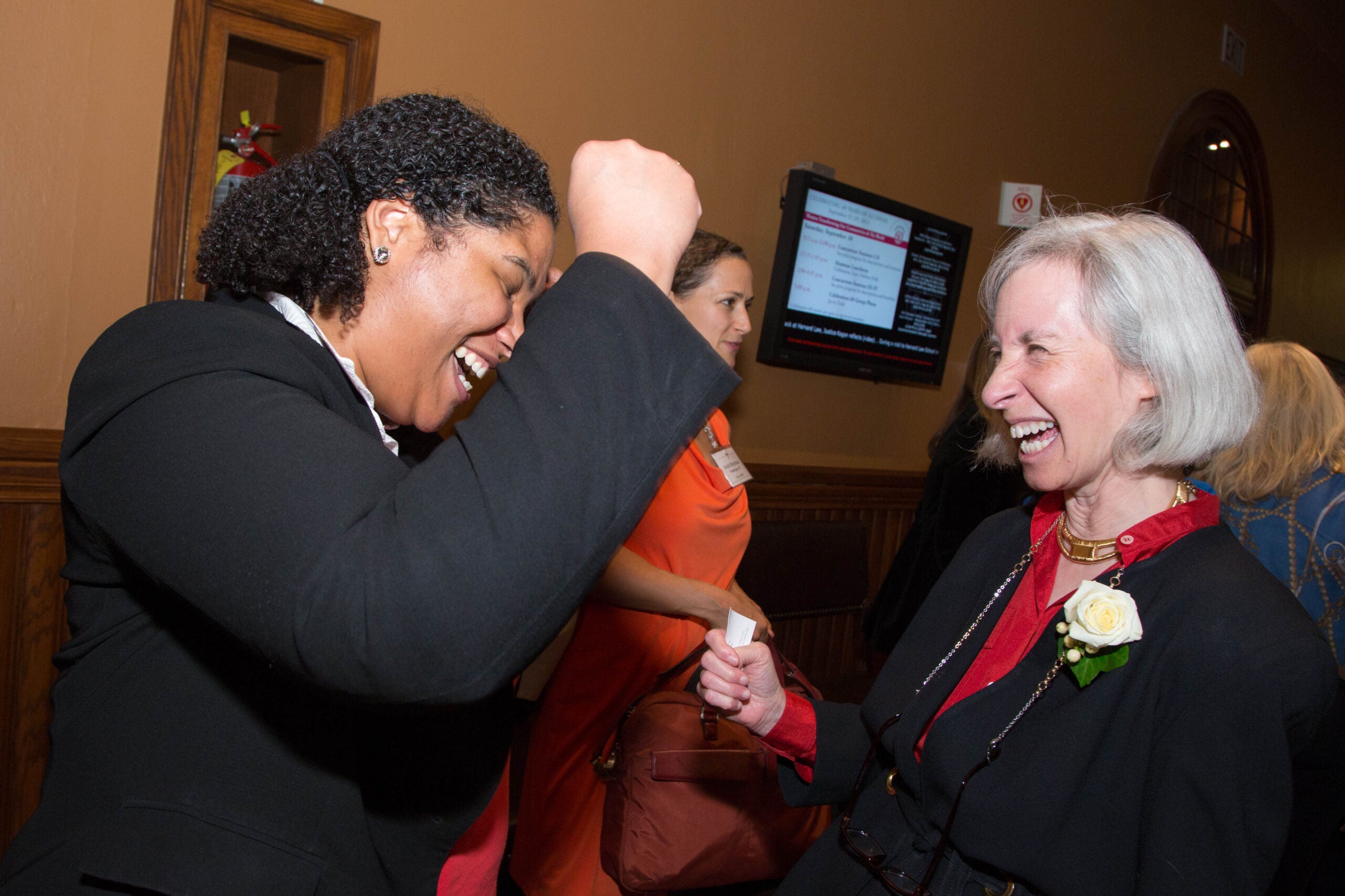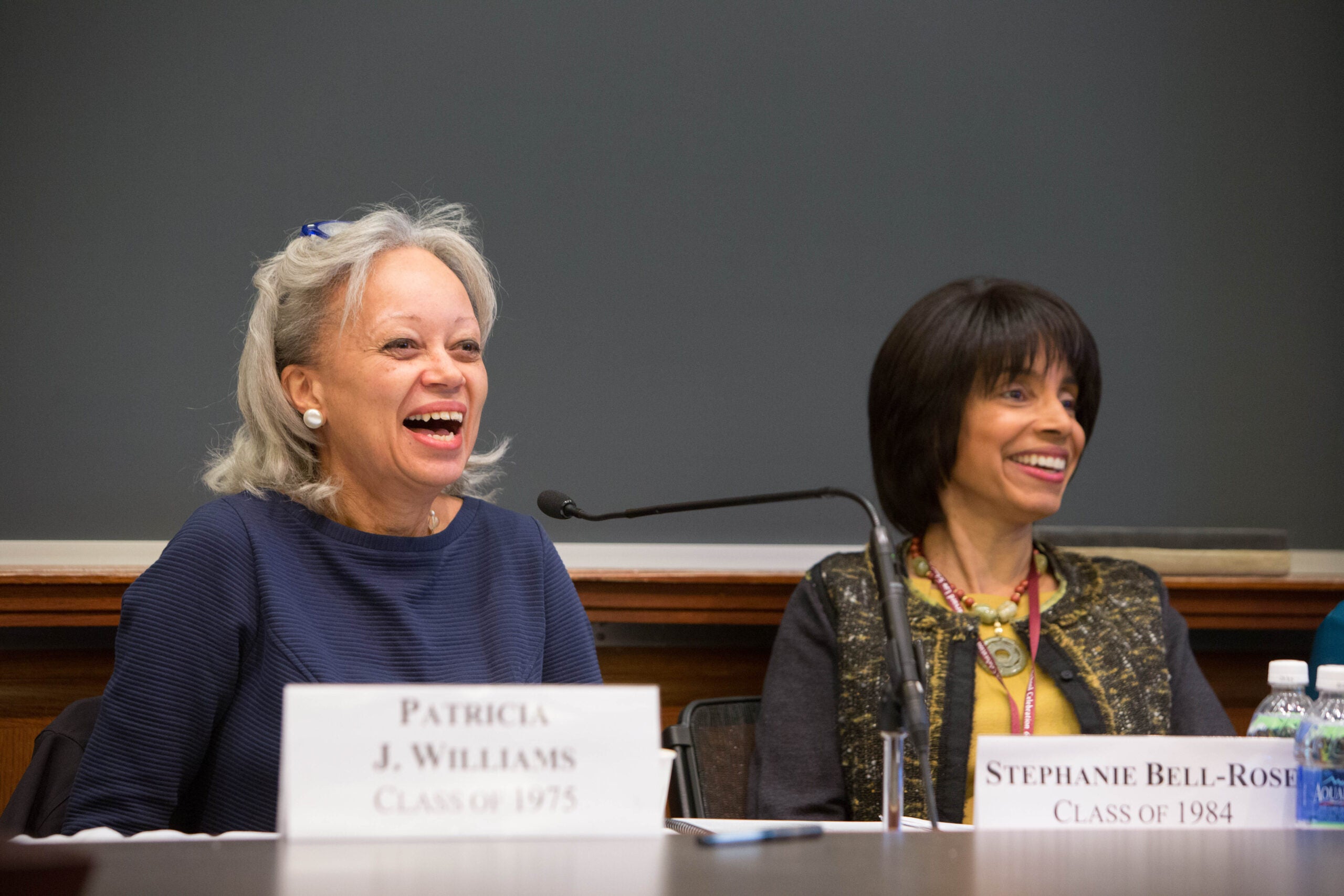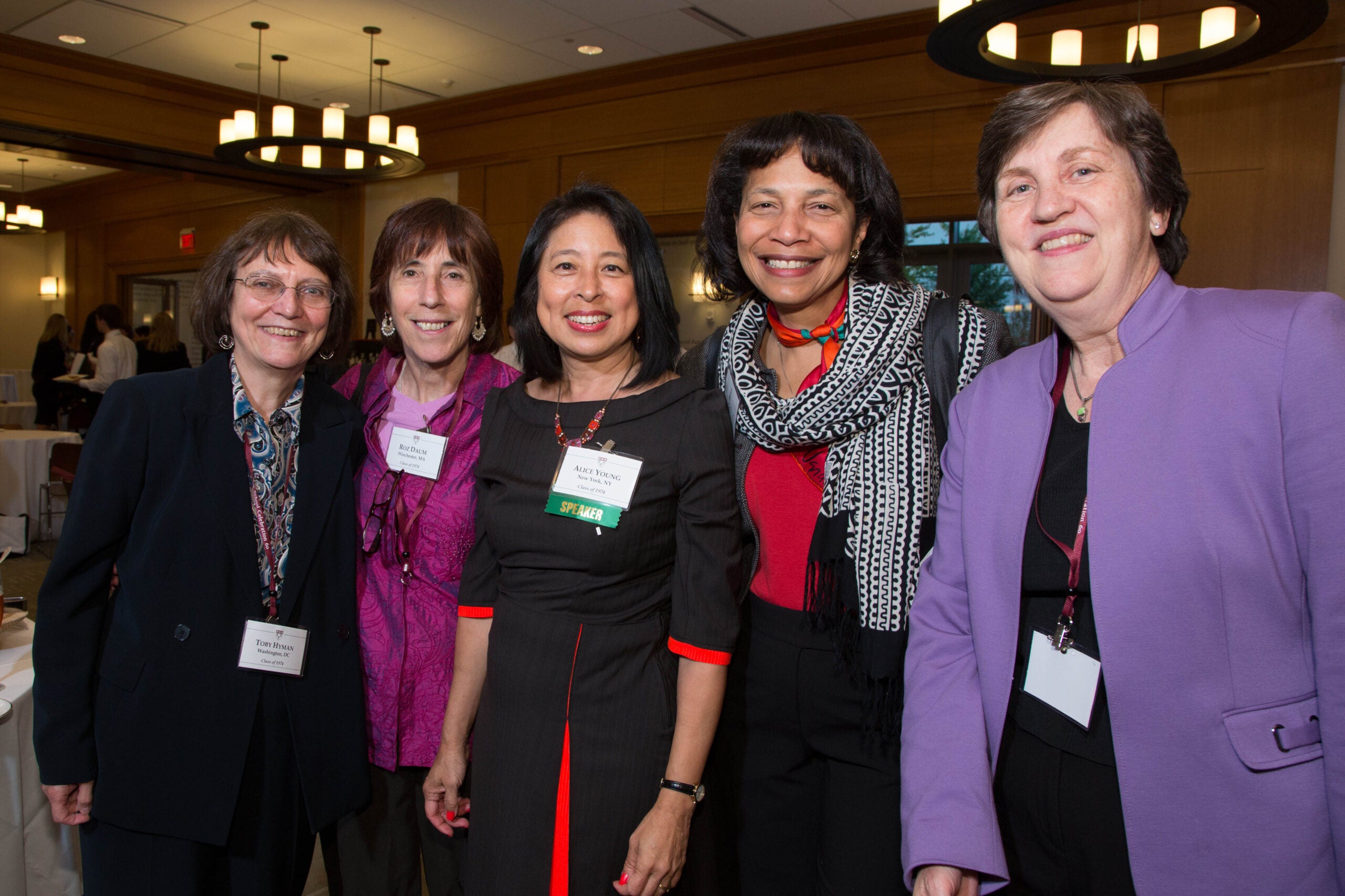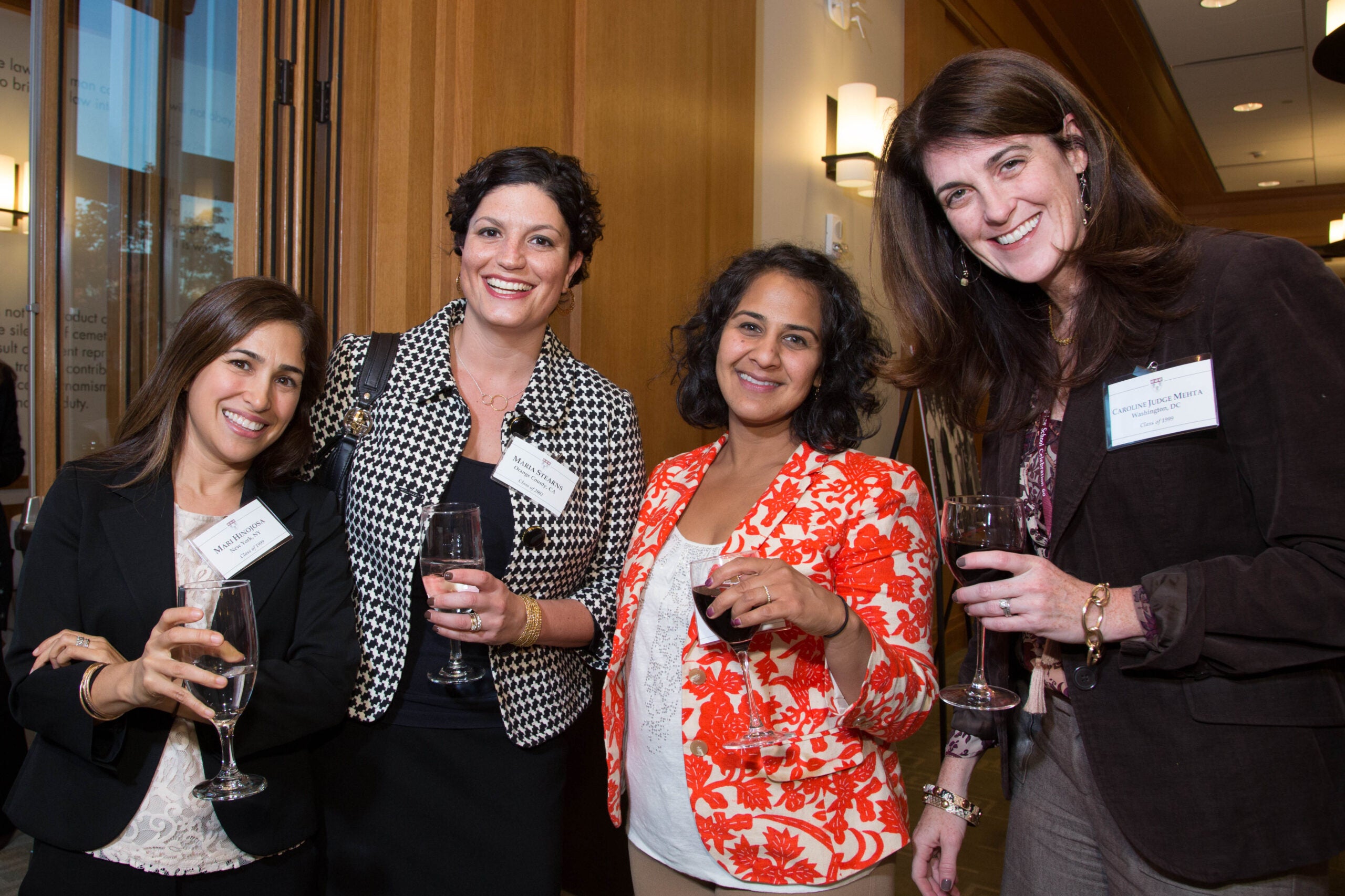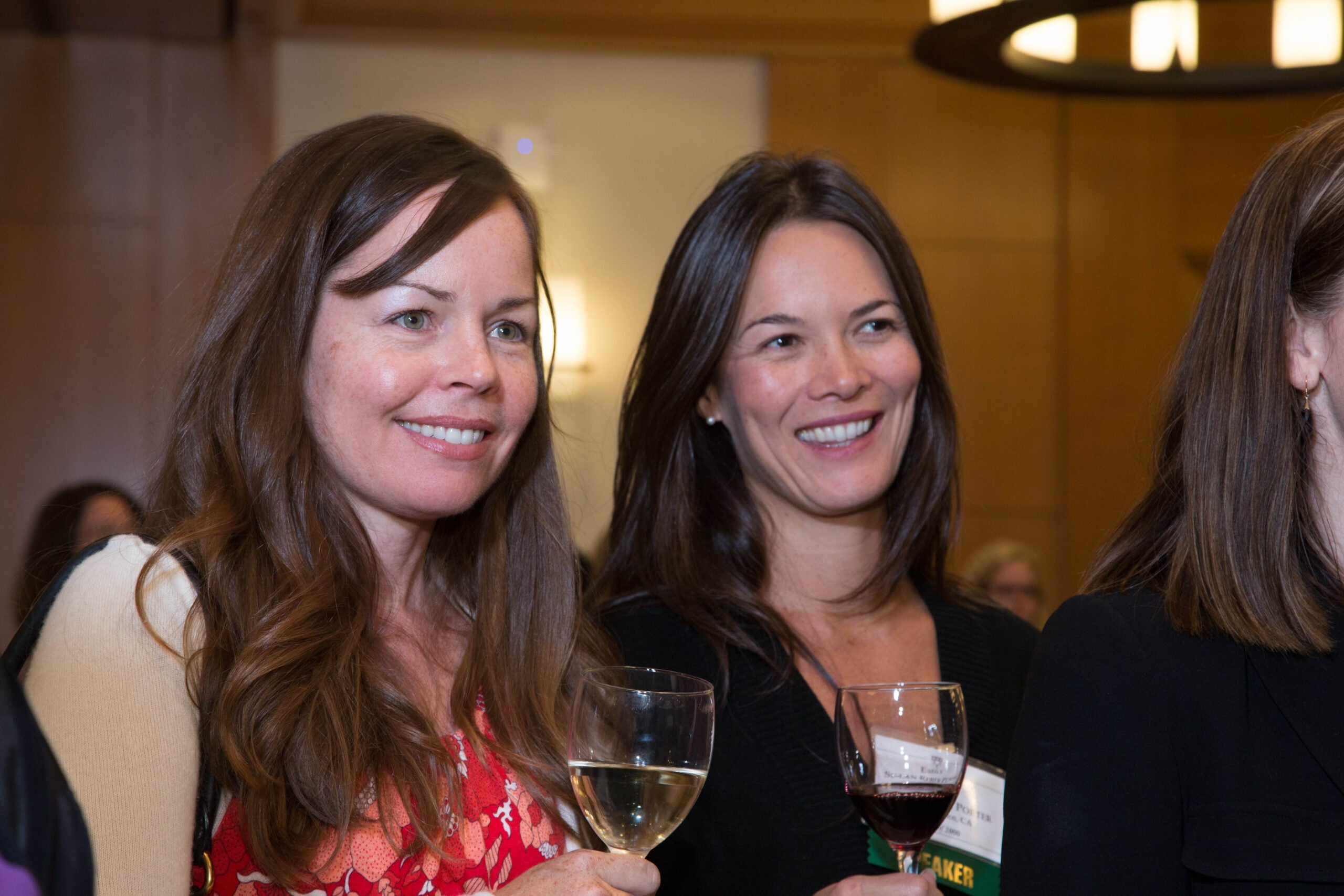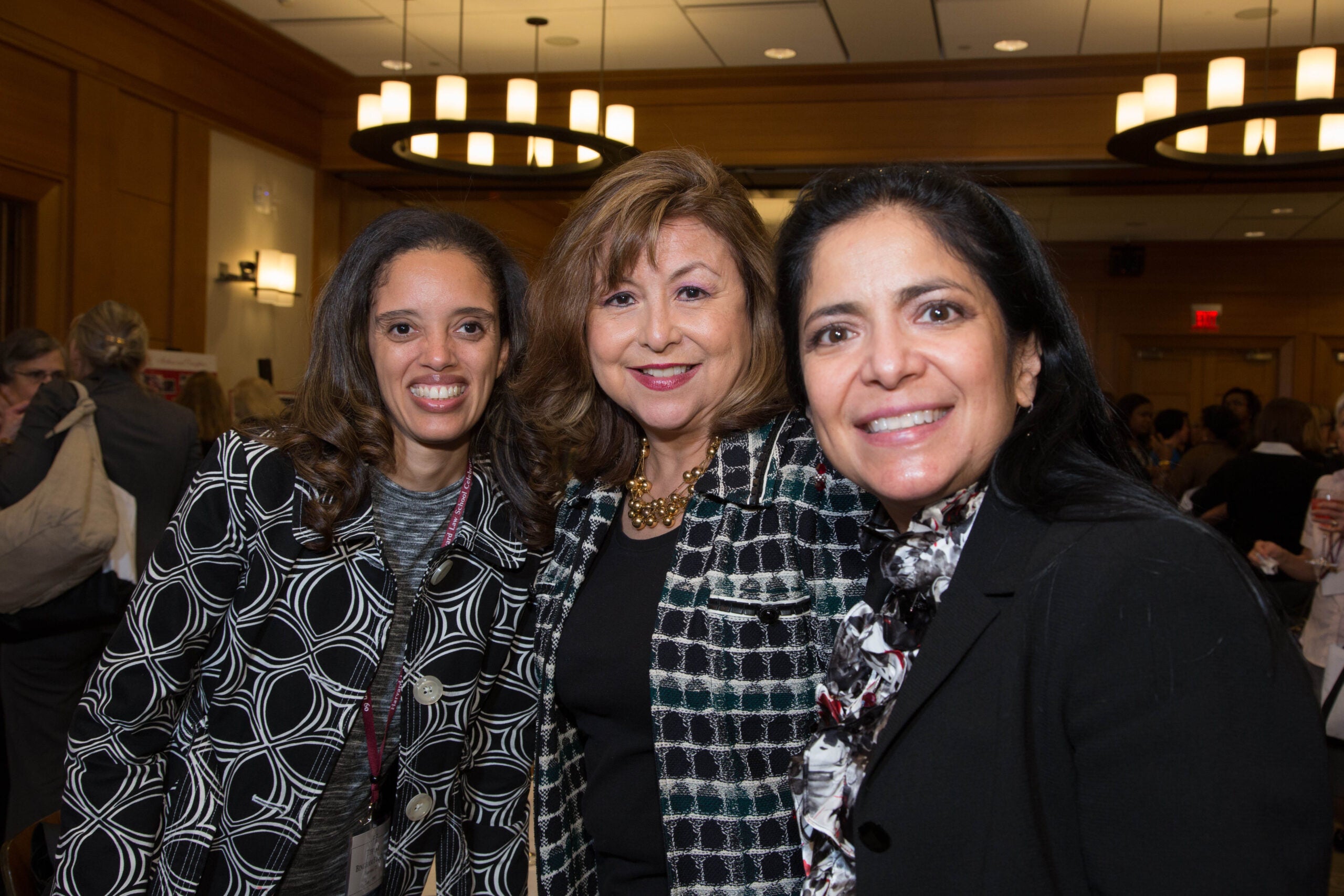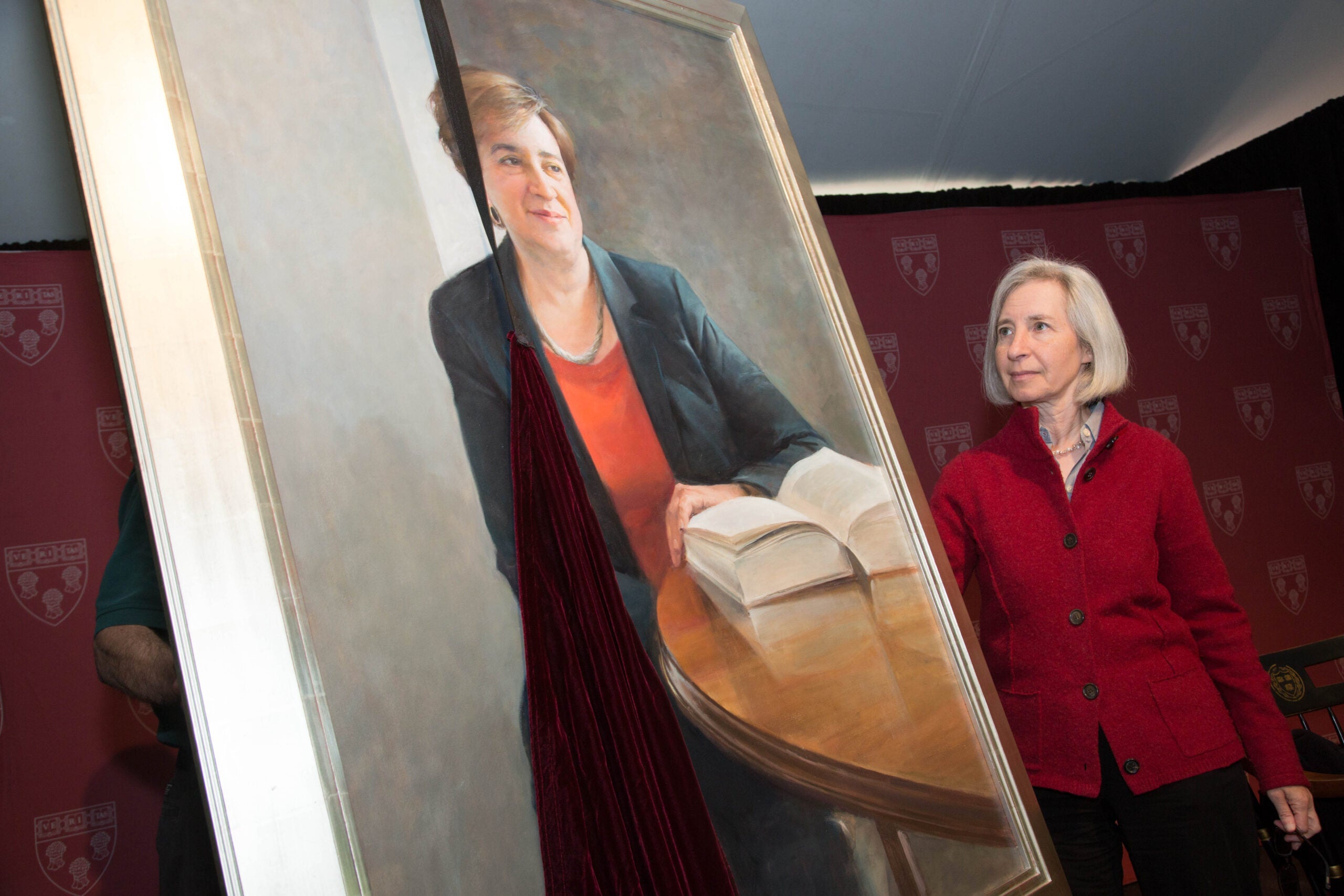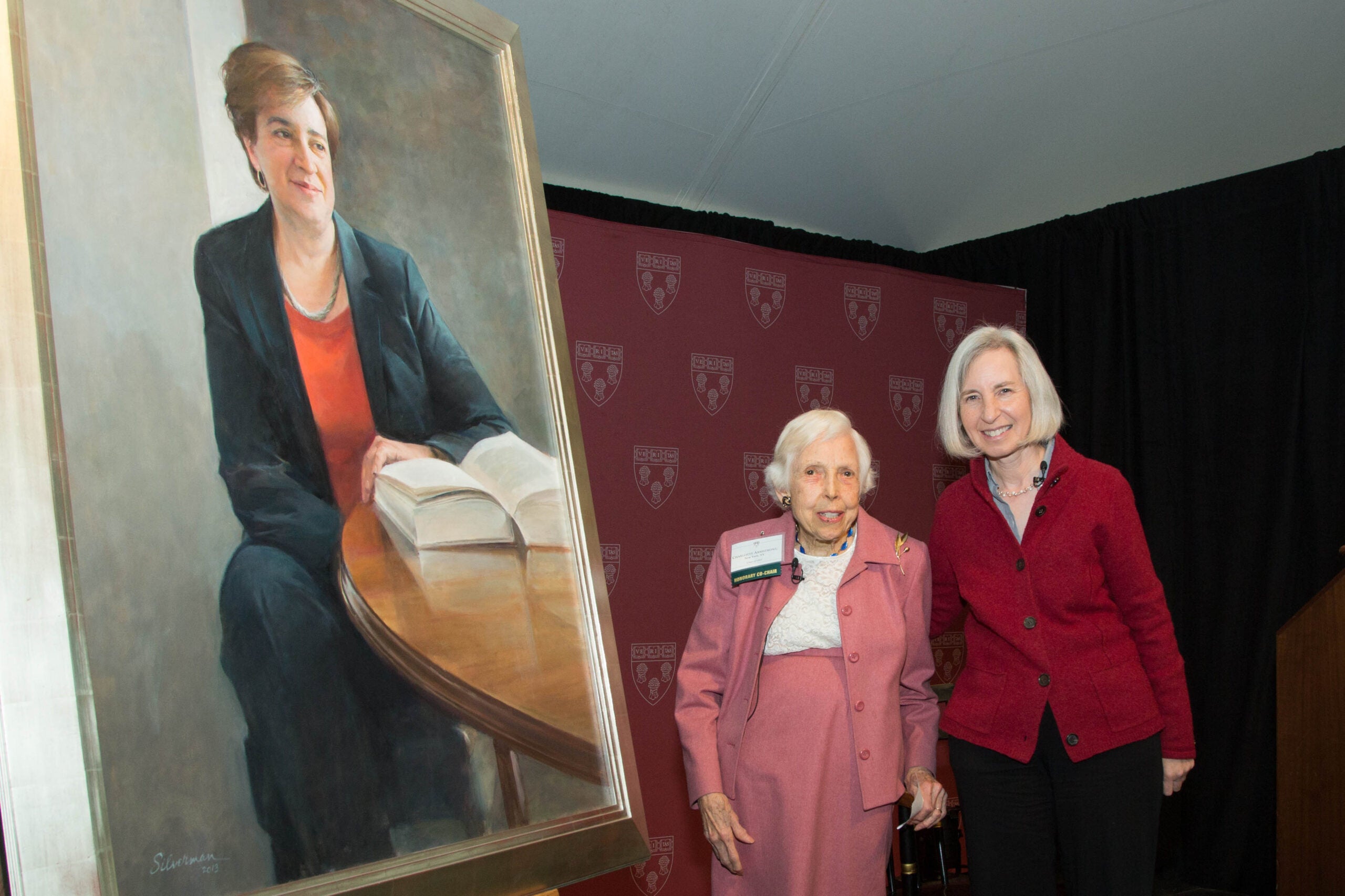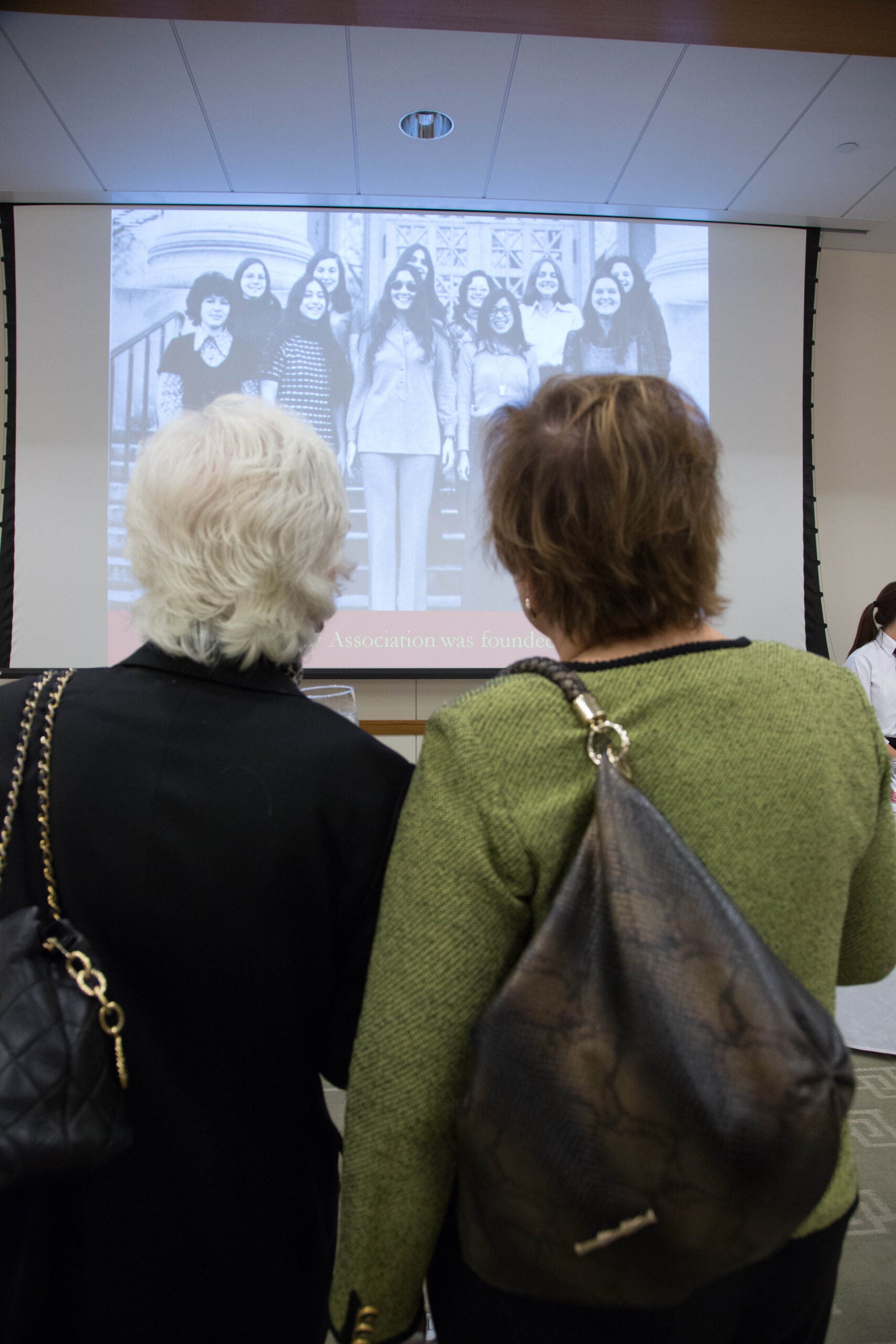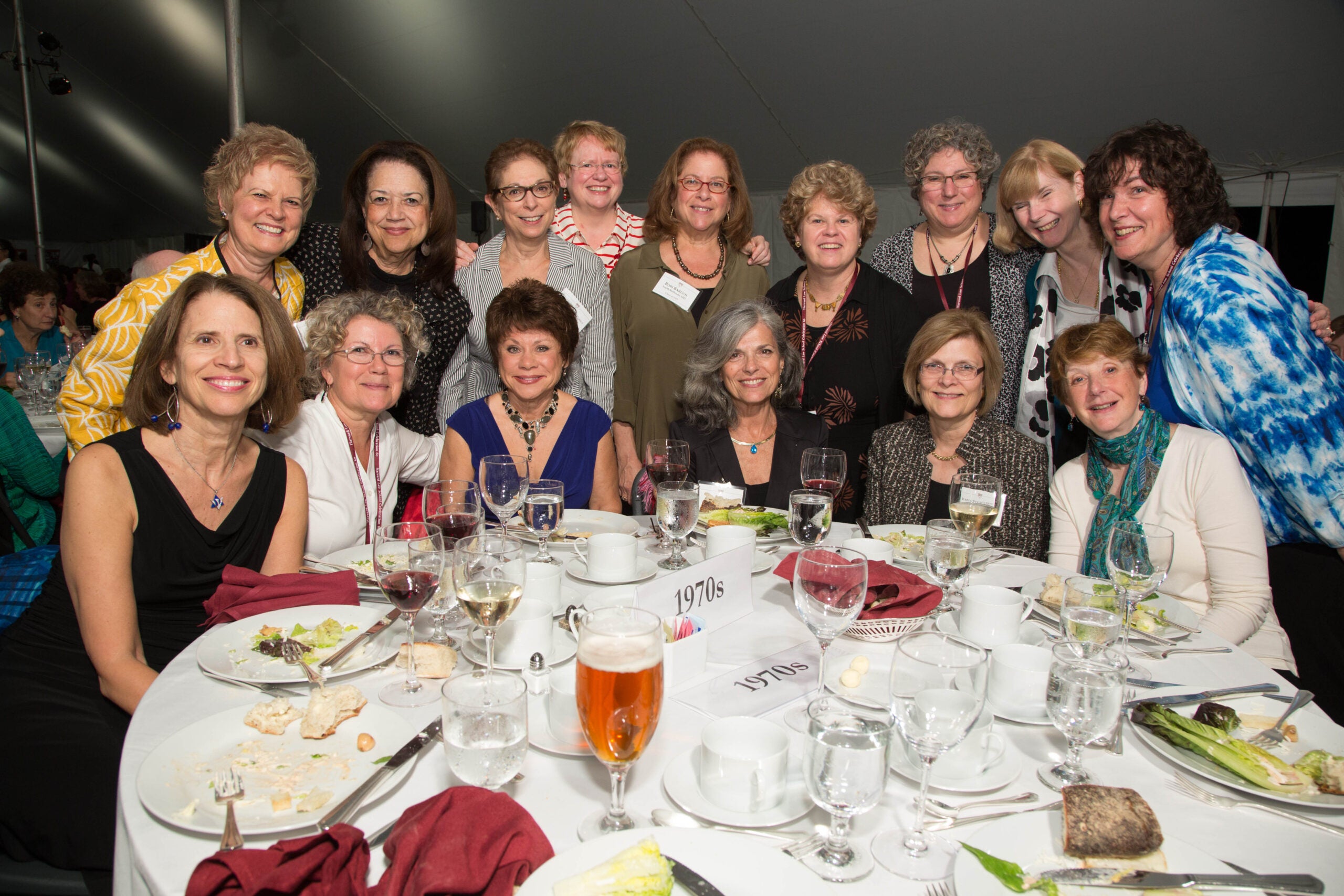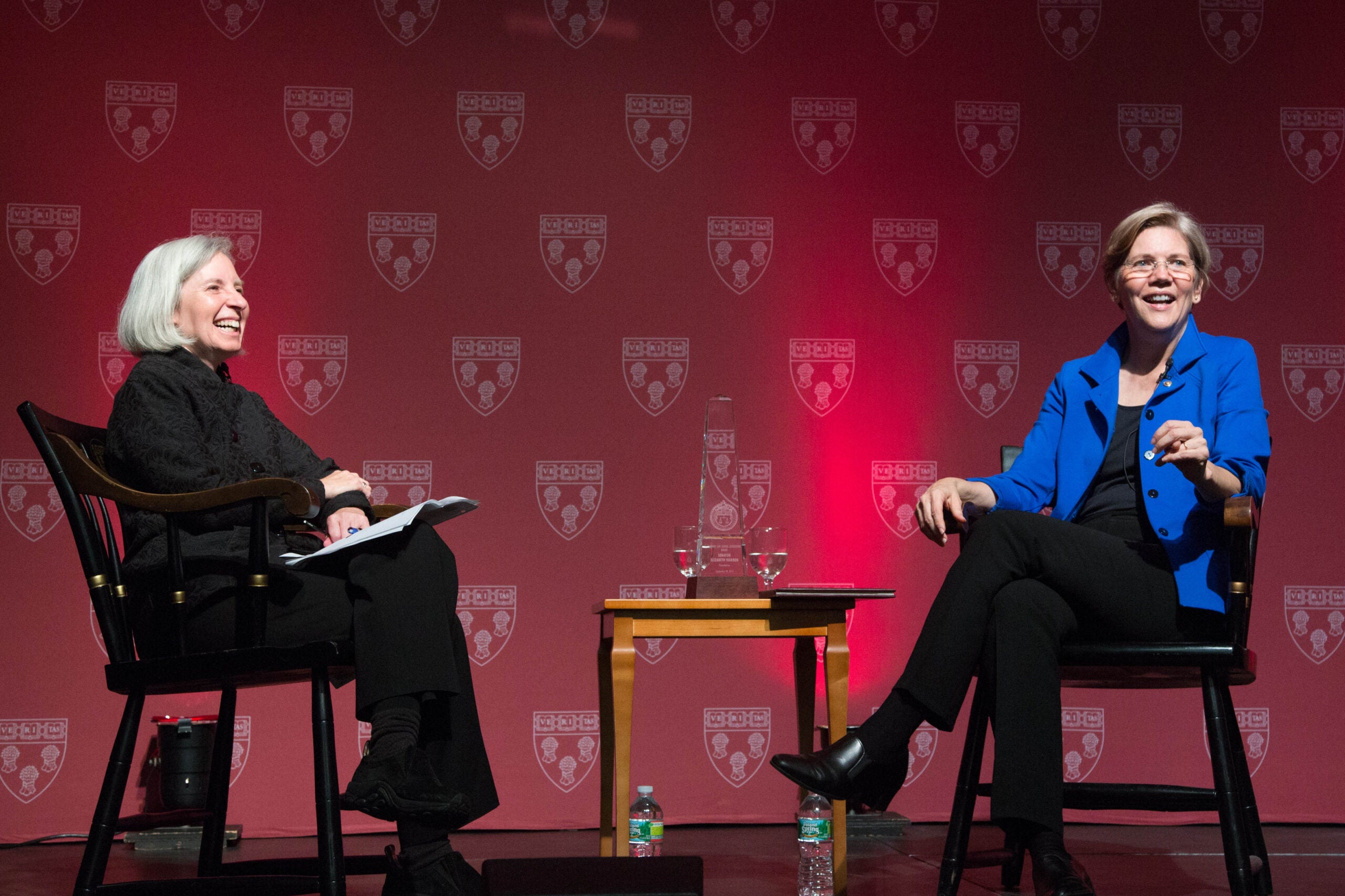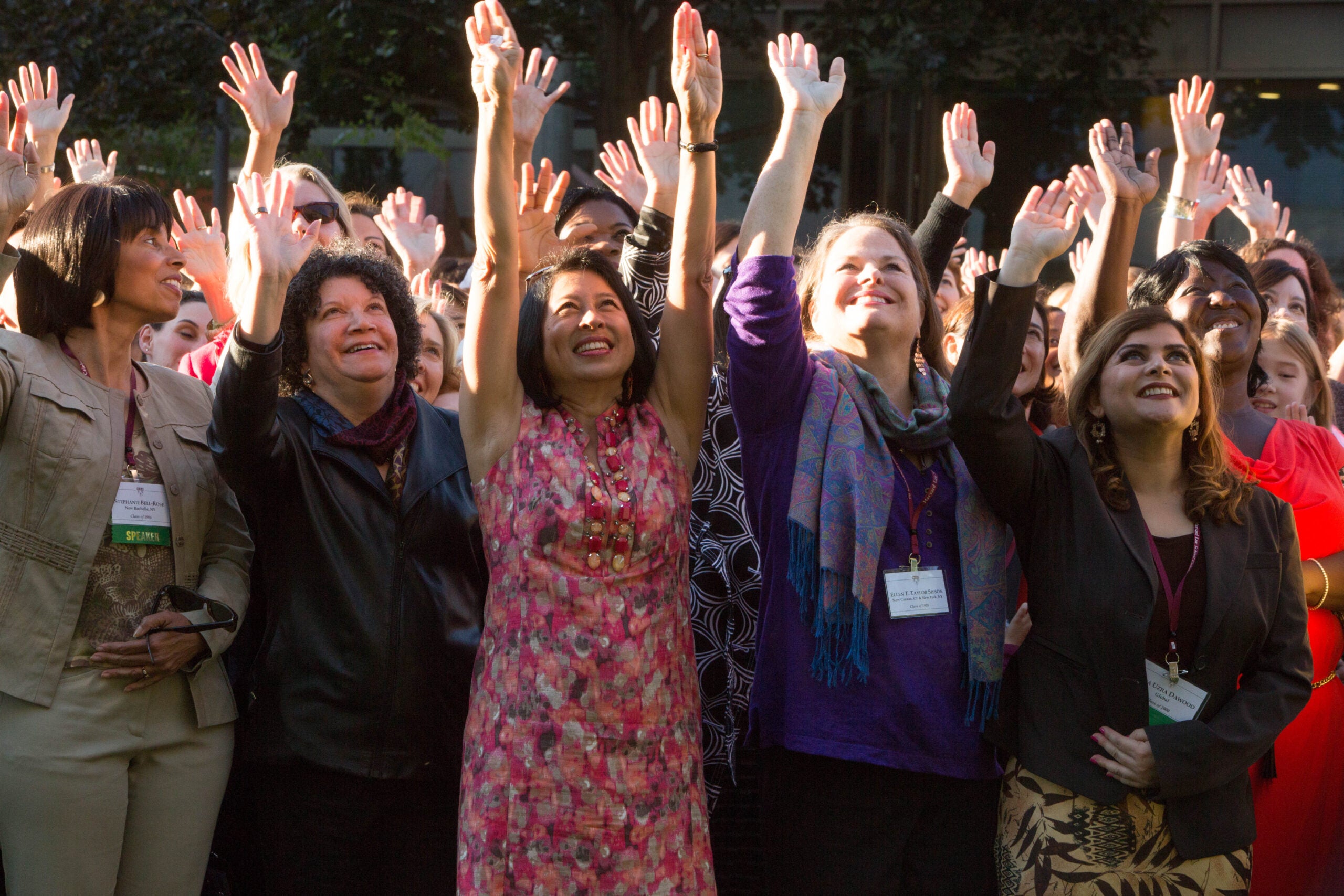A year after Christopher Columbus Langdell assumed the deanship of Harvard Law School in 1870 with the promise of making the school competitive and meritocratic, the first woman applied for admission.
Helen Sawyer, a 27-year-old New Hampshire resident, wrote: “I trust that under the present liberal tone of Harvard, my sex will post no misfortune for me.” The Harvard Corporation debated her request over two meetings, but ultimately rejected her. For 80 years the law school continued to bar women applicants, until, in 1950, 13 women were granted admission to Harvard Law School.
In September, Harvard Law School hosted more than 600 alumnae back to campus, including several members of the pioneer class of 1953, as part of “Celebration 60,” a reunion event to mark the 60th anniversary of the first women graduates of Harvard Law School.
The three-day event, which was held Sept. 27 to 29, celebrated what Dean Martha Minow described as “the smashing of the Harvard Law School tradition of exclusion.” The event was part of a worldwide women’s leadership summit of Harvard Law School alumnae, titled “Leaders for Change—Women Transforming our Communities and the World.”Several keynote speakers and panelists highlighted different aspects of the role of women in the legal profession.
Susan Cain ’93, author of the New York Times Bestseller “Quiet: The Power of Introverts in A World That Can’t Stop Talking,” discussed how to transform the way lawyers innovate, lead and teach. In a keynote address, Cain discussed how society needs both the skills and expertise of those more comfortable in the spotlight and the strengths and talents of those who describe themselves as introverts. “This is the next great diversity issue of our time,” she said. (see related story in the Harvard Gazette)
In a special presentation, Dean Minow awarded the Celebration 60 Award to Justice Ruth Abrams ’56, the first female justice of the Massachusetts Supreme Judicial Court, who has been a life-long defender of equal rights on issues including family leave, medical care, gender equity, and minority rights. In her remarks, Abrams praised the progress the Law School has made in diversifying its student body, faculty and curriculum since the early 1950s when, she said, women students were marginalized with “Ladies Day.” “Harvard is a very influential institution. For them to treat women in this way meant the world could treat women this way,” she said. “The sixty years that have past have meant that women by gaining acceptance here have gained more acceptance in the working place of the world.” Throughout her career, Abrams advocated supporting women: “Always look back and take another woman with you.”
In another reunion event, U.S. Senator and former HLS Professor Elizabeth Warren participated in a conversation with Dean Minow. Warren touched on her time as a young working mother and the challenge of finding affordable childcare. She addressed student debt, and the fight for the consumer financial protection bureau and the importance of making investments as a nation in education, infrastructure, and research. “We build a giant pipeline of ideas and it becomes who we are, and it pays off for us financially,” Warren stated, citing the success of the Human Genome Project. “We make these investments in research because it’s how we build a vibrant future.” The “Celebration 60” event featured a number of prominent alumnae participating in a wide-range of panel discussions focused on women and leadership.
In a panel “Women in the Judiciary,” organized by Yvonne E. Campos ’88, judge of the Superior Court of California, San Diego County and Leila R. Kern ’84, Superior Court Judge (Ret.), Commonwealth of Massachusetts, Harvard Law School Professor of Practice Nancy Gertner, former United States federal judge for the United States District Court for the District of Massachusetts, moderated a discussion with several alumnae. Panelists included Cynthia Aaron ’84, associate justice, California Court of Appeals; Christine M. Arguello ’80, USDC Colorado; Fernande “Nan” Duffly ’78, MA Supreme Judicial Court; Karen Nelson Moore ’73, United States Court of Appeals for the Sixth Circuit; Patti Saris ’76, chief judge, United States District Court for the District of Massachusetts; and Wilhelmina M. Wright ’89, associate justice, Minnesota Supreme Court.
In conjunction with the event, the Harvard Law School Library is hosting a new exhibit “Women at HLS: 60 Years of Transformation,” celebrating the contributions and leadership of women at Harvard Law School. The exhibit explores a number of themes, including enrollment, campus life, and the impact of student organizations such as the Women’s Law Association. It draws on Historical & Special Collections’ photographs of HLS students and the recently processed Red Set Ephemera collection. The exhibit is on view in the library’s Caspersen Room from now until Dec. 13, 2013.
A panel discussion on “My Brilliant, but Unusual Career” drew a standing-room-only crowd. Brande Stellings ’93, vice president, Corporate Board Services, Catalyst, moderated the panel which included: Carolyn Edgar ’93, vice president and Legal Counsel, The Estée Lauder Companies; Susan Estrich ’77, partner, Quinn Emanuel Urquhart & Sullivan, and professor of law at the University of Southern California; Sarah Hurwitz ’04, speechwriter; Lucy Koh ’93, U.S. District Court Judge and Jamienne S. Studley ’75, president & CEO, Public Advocates Inc.
The Celebration of Women reunion event has been a tradition at Harvard Law School since the first reunion was held in 1978, 25 years after the first thirteen pioneering women attended HLS.
For more photos from the event, visit the HLS flickr page.
Additional conference video is available on the HLS YouTube channel.
